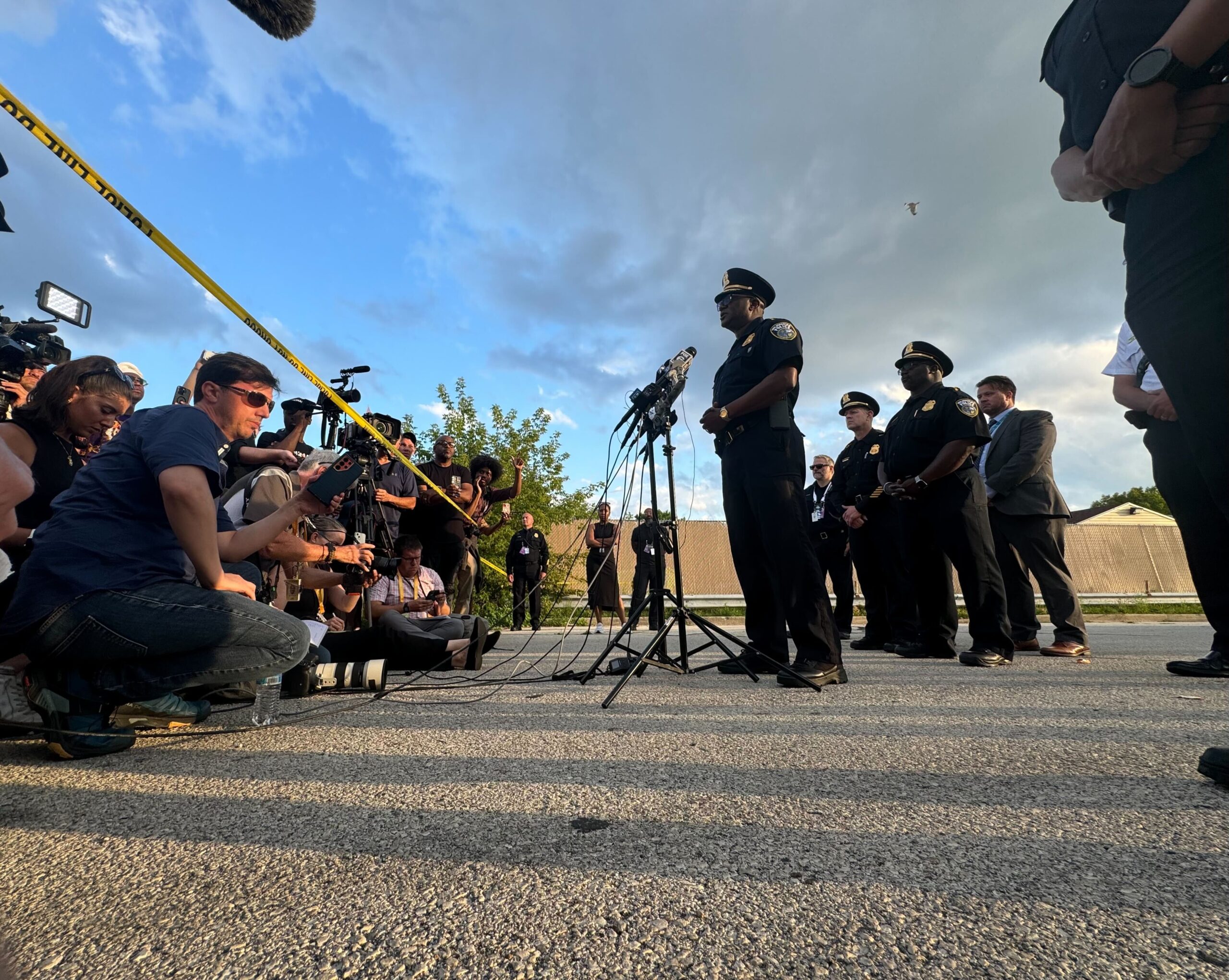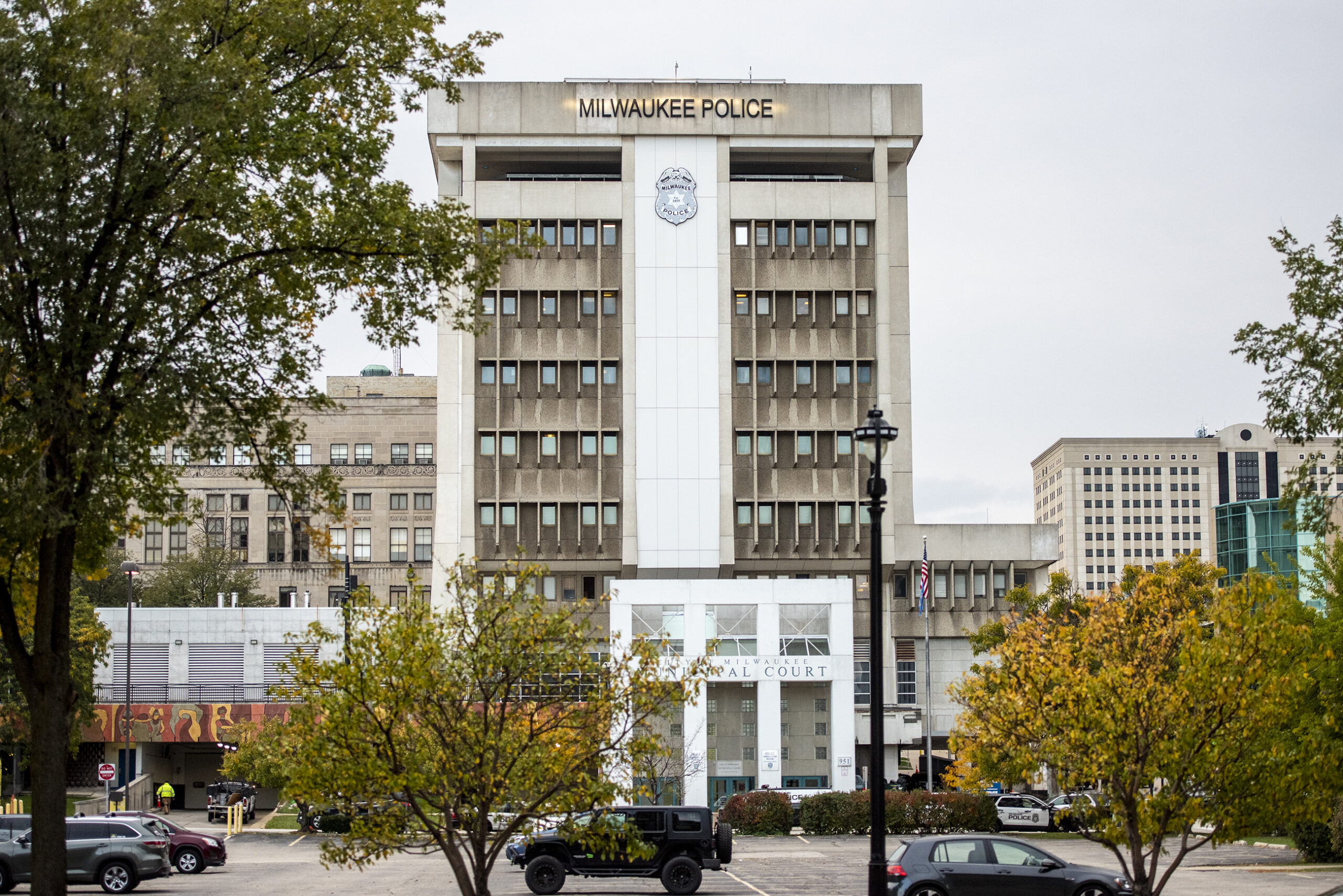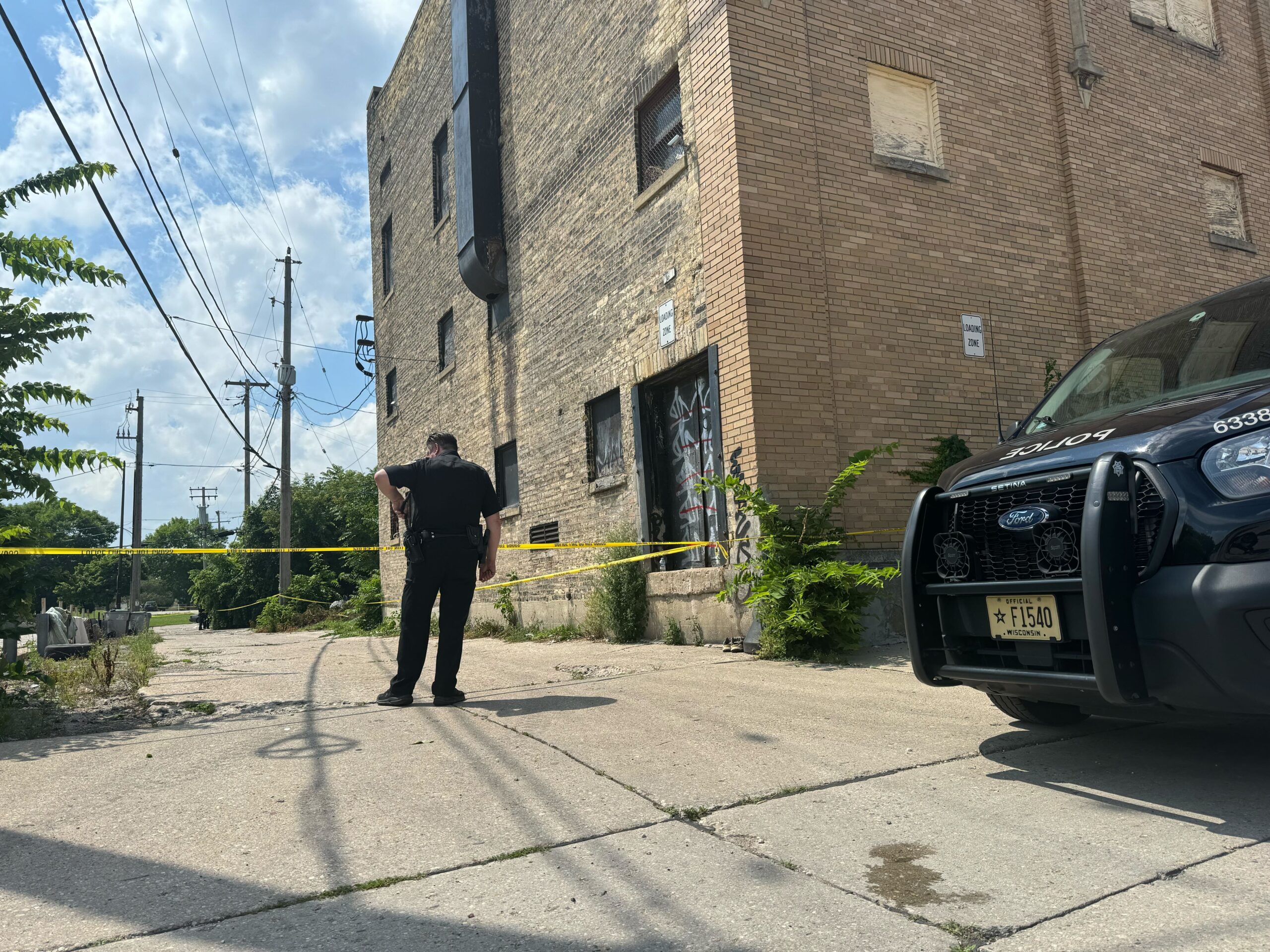At 55, Officer Gary Gothner is the oldest cop patrolling the streets of Superior, but he won’t be driving a squad car for much longer. In April, Gothner is hanging it up after 26 years with the city’s Police Department.
“I don’t want to be the guy that dies on this job,” he said. “This job has been wonderful to me. Absolutely great. I love it. I can’t imagine doing anything else, but sometimes you got to know when to go. Life is short.”
But Gothner isn’t the only one thinking about when it might be time to go. He’s among 236 public safety workers in the state who are eligible to retire this year, and state figures from the Employee Trust Fund show the number of those professionals eligible for retirement is increasing by about one-third over the next five years.
Stay informed on the latest news
Sign up for WPR’s email newsletter.
The Superior Police Department is set to see a full third of its officers become eligible for retirement over the next three years.
In Superior, and across the state, department officials and local leaders are faced with a need for younger public safety professionals to replace those who are stepping away.
A Different Job
A lot has changed about policing since Gothner first became a cop. He recalled dealing with more alcohol-related crimes from Superior’s bar crowd when he first started. Now, he said they respond to more calls for service and issues stemming from drug abuse. He also noted the many technological advancements over the years with implementation of body cameras, tasers and computers in the squad cars. He said the technology they use is both a blessing and a curse.
“Nowadays with these ambushes and people not liking the police, you don’t like to get distracted,” he said. “You can get so focused on doing something (on the computer), you don’t know what’s going on around you.”
Gothner also said people have placed law enforcement under the microscope more than ever since a series of high-profile killings of citizens by police, including the shooting of Michael Brown in Ferguson, Missouri.
“They all pull out their phones and everybody’s recording and everyone’s waiting for the cop to screw up,” he said. “That’s the biggest difference I found in 25 years.”
Earlier Retirement
Bob Rosch is retiring this month after stepping down as president of the Wisconsin Chiefs of Police Association in February. Rosch said one reason more people may be turning in their badges is simply that public safety workers can retire earlier.
“Anywhere from basically 50 on up, you can retire at any point in time,” said Rosch.
But, he noted whether those who are eligible will actually retire is anyone’s guess.
“It’s nice to be able to say you can retire that early, but it’s not reality for a lot of people because health insurance is the biggest factor that prevents them from retiring that early,” Rosch said.
Gothner agreed that is the sole reason a lot of officers are putting off retirement.
“A family health care plan, if they were to retire, their health care would cost over $2,000 a month,” said Gothner.
Refilling The Ranks
Superior Police Chief Nick Alexander said his department is planning ahead for the loss of officers with up to seven of his officers retiring this year alone. The department has begun hiring more recruits now to cut back on overtime for officers and meet public safety needs.
“Ultimately, it will allow us to get officers hired, to the necessary school, and through field training prior to the person they’re replacing leaving or at least very close to that timeframe,” Alexander said. “That reduces the shortage of bodies that we have to fill patrol shifts.”
The department has received more than 100 applicants to fill those positions. Alexander said they typically send recruits to the Law Enforcement Academy at Chippewa Valley Technical College in Eau Claire. Eric Anderson, director of the academy, said they offer the course three times a year to new recruits and enrollment has remained steady.
“We haven’t seen a real significant change in the number of students coming in,” he said. “As far as students coming into the criminal justice program, we saw a slight decline over the past couple of years. That’s rebounded and we’re back up to a waiting list.”
He said criticism of law enforcement over handlings of police shootings in recent years hasn’t deterred new recruits.
“They feel like they can make a difference in the world, that it’s their duty to step and say, ‘I can make a difference. I will be that community police officer that makes a difference in my community, city or county,’” he said. “They’re taking up the challenge. They’re stepping up and not being deterred by anything that’s out there.”
However, for officers who have witnessed the changes in law enforcement, Alexander said it may play a role in an officer’s decision to retire.
“I certainly could see that the added stress of policing today might make it easier for somebody once they reach eligibility to say, ‘Hey, I put in my time. I’m going to retire,’ versus ‘Maybe I’ll stick around for a couple more years.’”
Alexander said the Superior City Council approved using around $100,000 typically reserved for other purposes to pay for hiring more officers this year and next. As for Gothner, he doesn’t know what he’ll do when he puts away the uniform.
“I don’t want to let myself down. I don’t want to let somebody else down,” he said. “I guess I want to go out while I still have a decent reputation.”
Wisconsin Public Radio, © Copyright 2025, Board of Regents of the University of Wisconsin System and Wisconsin Educational Communications Board.





